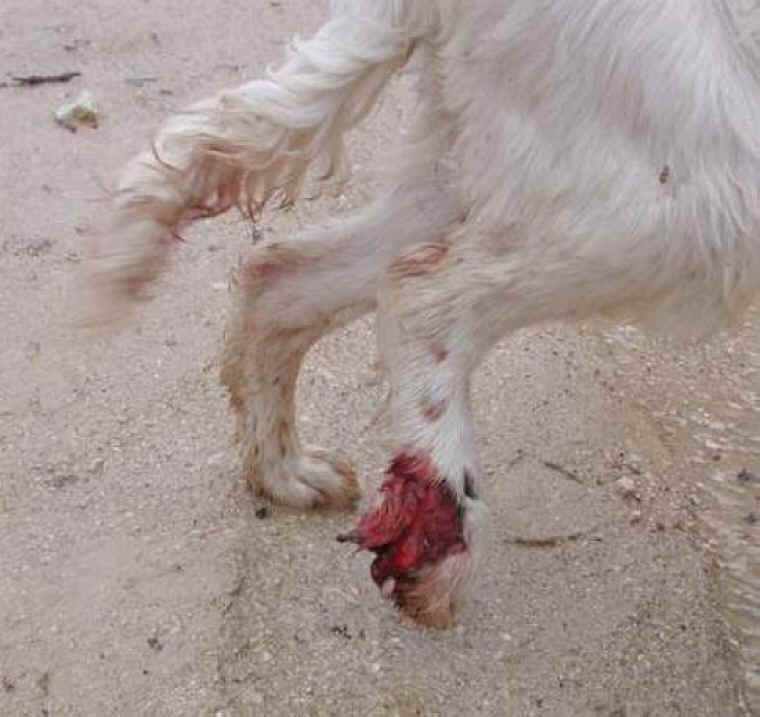How to Help a Dog with an Injured Paw Pad

Dog is a faithful animal and can prove out to be a friend, companion and a family member. If you have a dog, you should be alert to the possibility that it might hurt his paw after a walk or can be harmed by other dogs on the way home.
An injury to the paw does not pose a danger to his life because these injuries can occur in routine basis. In particular, almost every dog owner is faced with such cases. However, the dog owners should know how to deal with such situations.
Instructions
-
1
Injury is defined as any violation of the integrity of the skin and internal vessels. Wounds, depending on the nature of injuries, are divided into shallow and deep. Deep wounds tend to pose a significant risk because the dog can lose a lot of blood. If your dog has scratched his paws after a routine walk, the wound can be washed with any disinfectant solution (3% hydrogen peroxide, chlorhexidine).
-
2
Treatment of wounds lies in its processing and ligation. The wounded area should be free of dirt and pus. Clean that area from clean eater first. Then, it should be treated with hydrogen peroxide or iodine tincture potassium permanganate. At the time of wound healing dog must wear a muzzle to keep it from licking the wound.
-
3
If the wound is deeper, hydrogen peroxide will help stop the bleeding. Flush the wound liberally and then apply a pressure bandage on the affected area. Antibacterial ointment can be applied to stop the bleeding and making the healing process faster than usual.
-
4
As a result of shock or injury from a car, your pet may experience internal bleeding. If the dog has just had an accident, he will definitely have a weak pulse. So, there is an urgent need to bring the dog to the vet, who will be able to accurately make a diagnosis.
-
5
You should be aware of the fact that dogs usually try to lick the wounds themselves. For a more speedy recovery, it is recommended to stop him from doing that as much as possible. If the wound is on the head, the pet can wear a plastic collar, which can be purchased at any veterinary pharmacy.

